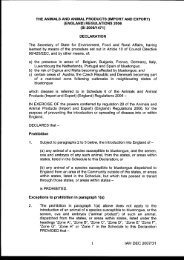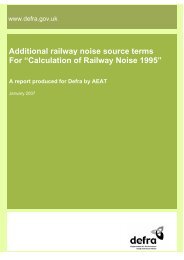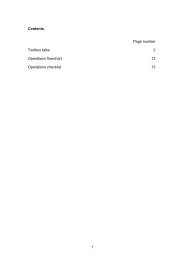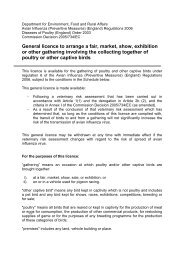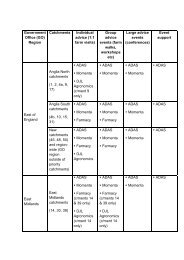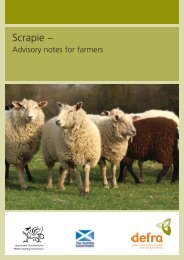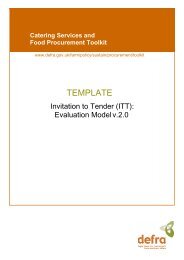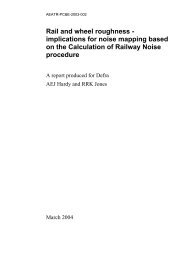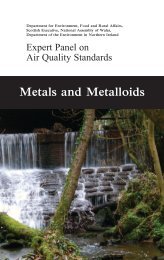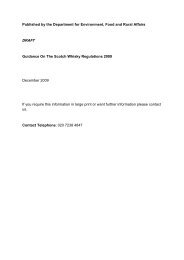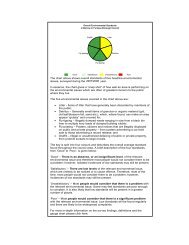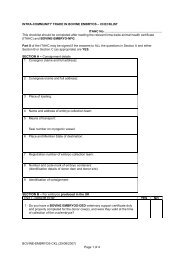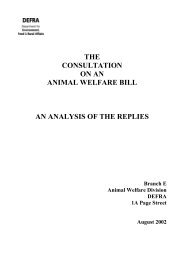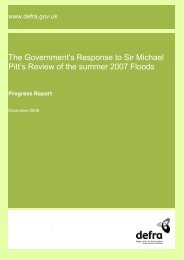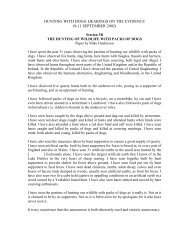Review of the Food-borne Zoonoses Research ... - ARCHIVE: Defra
Review of the Food-borne Zoonoses Research ... - ARCHIVE: Defra
Review of the Food-borne Zoonoses Research ... - ARCHIVE: Defra
Create successful ePaper yourself
Turn your PDF publications into a flip-book with our unique Google optimized e-Paper software.
produced were both relevant and important and had contributed significantly to <strong>the</strong><br />
evidence base for VTEC O157. A large number <strong>of</strong> scientific publications had been<br />
generated.<br />
The work on sheep and goats has been <strong>of</strong> value in <strong>the</strong> control <strong>of</strong> transfer <strong>of</strong> infection to<br />
humans from animals on open farms. It has also provided new information on <strong>the</strong><br />
mechanism <strong>of</strong> long term colonisation <strong>of</strong> E. coli O157 and <strong>the</strong> potential role <strong>of</strong> o<strong>the</strong>r<br />
strains as natural antagonists against infection. The results from challenge studies in pigs<br />
and poultry have raised many questions as <strong>the</strong>se indicate that both species are<br />
susceptible to E. coli O157. In practice, poultry meat and pig meat and also contact with<br />
poultry and pigs have not proved to be a risk for human infection, despite <strong>the</strong> large<br />
population <strong>of</strong> free range pigs and poultry in England. This contradiction needs to be<br />
better understood, for example by studying <strong>the</strong> influence <strong>of</strong> natural intestinal flora on as<br />
potential antagonists for E. coli O157.<br />
104



